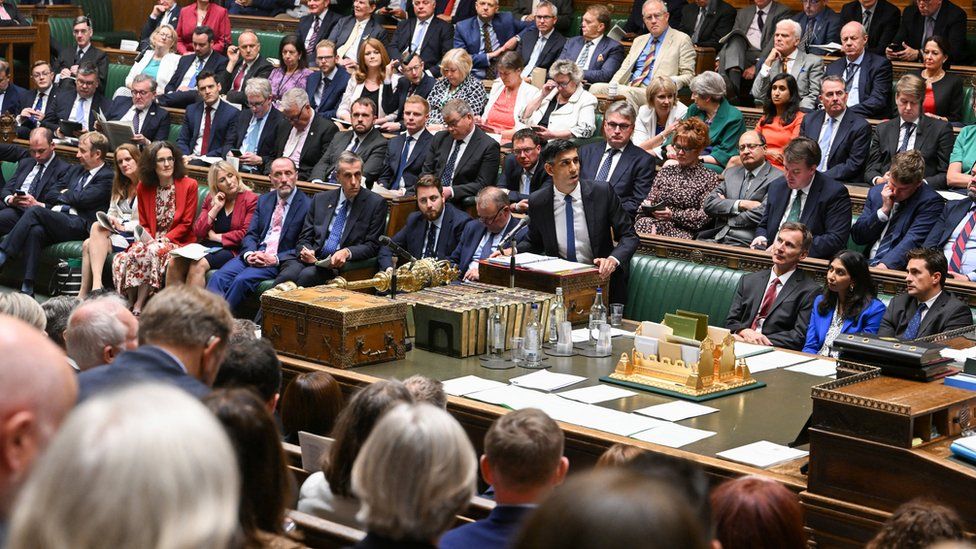 Image source, UK Parliament
Image source, UK Parliament
By Pete Saull, Kate Whannel & Paul Seddon
BBC News
Severance pay for MPs leaving Parliament at the next general election is to be doubled, to more than £19,000.
Former MPs will be paid for four months instead of the current two, while they close their office and manage the departure of their staff.
IPSA, the independent body that sets the rules for MPs' expenses, said the current period was not long enough.
It follows a review of the rules following a public consultation that ended in June.
Previously, only those who lost their seat at a general election, or who stood down at a "snap" election, could qualify for the extra pay.
But following the end of five-year fixed term parliaments, all MPs who are standing down at an election will now qualify.
As before, those MPs who stand down before an election period will not receive the payment.
IPSA said the tasks departing MPs needed to complete included closing down their constituency offices, returning equipment, managing staff redundancies, and transferring constituency casework.
The watchdog said its "experience of previous elections" showed this process was taking longer than two months.
It also said the handover process could be more complicated at the next election because of new constituency boundaries.
MPs are currently paid £86,584 a year. The severance payment will increase from two months' net pay to four, which on current salaries would mean an increase from around £9,878 to £19,756.
MPs can claim separately from IPSA to cover the actual costs incurred during the handover process, such as salary and pensions costs for staff, office rent and closing-down costs.
'Winds me up'
In addition, MPs who lose their seat at a general election are also eligible for a separate redundancy payment, known as a "loss-of-office" payment.
It is paid only to MPs who have been in Parliament for more than two years, and depends on their time in the job. The average payment made after the last election in 2019 was £5,250.
According to IPSA's 2021 accounts, the body paid out £1.28m in severance payments and £827,600 in "loss-of-office" payments after that election.
More than 70 MPs have so far announced they will not be standing for re-election, including Defence Secretary Ben Wallace and former cabinet ministers Dominic Raab, Matt Hancock and Sajid Javid.
The new system does not need to be approved by Parliament as IPSA has been granted the powers to set the rules itself.
Conservative MP Bob Seely said he was "not particularly happy" about the changes, adding: "I don't think people resigning should be getting a payout."
Speaking on TalkTV, he added that while IPSA was an independent body, "everyone is going to blame us for it".
"It really winds me up, frankly," he told the channel.
In February, a report from MPs on the cross-party Commons Administration Committee asked IPSA to rethink the length of the winding-down period, noting some ex-MPs had taken between five and eight months to complete their handover.
It also called on IPSA to review the loss-of-office payments against "comparable redundancy payment schemes in other sectors".

 8 months ago
8 months ago
.png)









